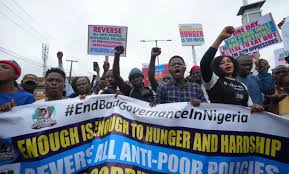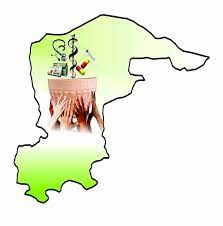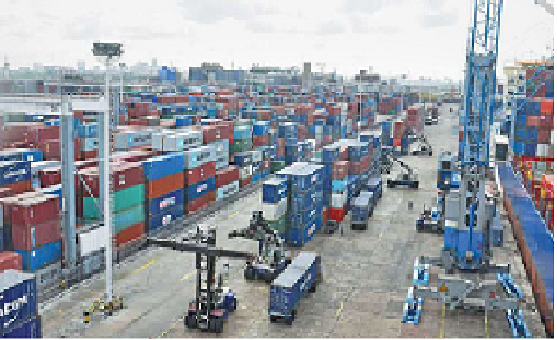OPINION
Lessons from the #EndBadgovernance Protest

By Taiwo Adisa
Two weeks before the August 1, 2024- D-Day for the start of the #EndBadgovernanceinNigeria protest, programmed by the #takeitbacknigeria movement and its allies, there had been a huge paroxysm around the Federal Government. There were security briefings, meetings with the political class, traditional institutions and religious bodies, youth groups, etc.
It was clear that the government was concerned. Political appointees and security operatives were falling over themselves to update the media and communicate the implications of the protest.They said the organizers were faceless and pleaded with Nigerians to shelve the idea of a protest at this time. Several other reasons were adduced to justify the need to terminate the planned action. One such reason was the need to give the government ‘more time’ and then the possibility that hoodlums could hijack the protest.While the second reason above looks tenable,(even though some would argue that security agencies are paid to ensure peace and order) and remains a constant red flag against public protests in our clime, especially in the aftermath of the bloody #Endsars protests of October 2020, the first excuse may not have much appeal. Looking at the Nigerian circumstance, and as you keep close eyes on the natural and constitutional consequences of life here in good conscience, you will find it difficult to ask the protesters not to act.We live in a country where the system has made destitute of many and turned others into living corpses. So asking the people to give the government ‘more time’ would be implausible. And then there are no immediate juicy promises in the belly of the ‘time’. How do citizens allot “more time” to an elected government whose time frame is fixed by the Constitution? Whether a government is a day old or three years old, what is important is accountability, and democracy as a rule of the people, for the people, and by the people, guarantees public accountability from day one. Therefore, bidding for ‘more time’ in an inelastic situation is a misnomer.Government officials have equally appealed to the citizens to shelve the protest. That to me is another untoward request. There are always two sides to the coin. The sword always has two sides. In our world too, there is the word and the opposite. You don’t beat a child and ask him not to cry.You either beat the child and risk the consequences of having your eardrums disturbed with unwanted noise for some time, or you spare the rod. So all the pleas should have been considered before the government launched its policies and the advertised reforms. Three such reforms are notable here; the removal of fuel subsidy (or increment of fuel price), floating of the Naira (devaluation of the currency), and the increment in electricity tariff.I remember telling the Minister of Power, Adebayo Adelabu on this page to perish the idea of a hike in electricity tariff when he mooted it. I did that because I knew it would bring untold hardships to Nigerians and such that can breed the type of social unrest the #EndBadGovernance protest has now wrought on the polity. Now that the chips are down, the government had to run from pillar to post to quell protests and riots.Considering what we have seen thus far, some models are emerging around the current state of things. Some lessons and realities are equally emerging. I will dwell on three.Political jobbers are in their numbers in Nigeria: The build-up to the August 1 protest showcased that the more things changed in Nigeria, the more they appeared the same. The tactics deployed by governments since the days of the military have hardly changed, even after 25 years of consistent democratic rule. In the days of the military, you saw divide-and-rule tactics. Whenever protests were afoot, you saw agents of the government creating divisions and attempting to divert attention from the real issues. The agents were everywhere. On campuses and in the public space. The same tactics were deployed leading to August 1. Media houses practically got tired of publishing the list of countless groups that ‘dissociated’ themselves from the planned protest.It was as if all the groups in Nigeria had backed out of the planned protest and that the plan had collapsed. By Thursday, such thinking piled into insignificance as youths turned out in their numbers to participate in the protest, even though some untoward consequences were recorded in some locations. The message here is simple: Nigeria belongs to the people, not the countless jobbers, who readily deceive governments in power with the a’omerin j’oba cognomen, in exchange for undue patronage. Now the report is there for all to see. The Organised Private Sector announced late on Thursday that the country had lost N500 billion of its Gross Domestic Product (GDP) on the first day of the protest.Political jobbers should let the government do its work: Rather than deceive the government in power that it has been able to cow perceived insurrection, political jobbers need to allow the government to do its job. Arising from the unenviable lifestyle of the state of nature, humans entrusted their willpower to the hands of an overriding authority called government. It took different colorations in different climes but wielded similar power of life and death (sometimes) over its citizens.The jobbers readily come in with sweet sounds that provide likable music to the ears of the powers that be. They tell the authorities what the king wants to hear and praise him to the high heavens. They tell him you own today, tomorrow, and the day after tomorrow. You are the God that we see. The god relishes in the beautiful renditions and packages the praise- singers with all the goodness he can muster. While the king goes down with the image of a bad leader, the praise singer goes to the gate of the next leader, rendering similar panegyrics that earned him goodies in the past.Government must prioritise people’s welfare: Section 14(2) of the 1999 Constitution (as amended) provides that “the security and welfare of the people shall be the primary purpose of government.” Even though that section may not be justice-able as lawyers would say, any government in power must know how to prioritise the welfare of its people. Otherwise, it would be a situation of the bird that lands on the rope, where neither the rope nor the bird knows peace.Our government in Abuja must know that irrespective of what the economic theorists say, you must have a country first before you can guarantee economic stability and theoretical correctness. Where an economic policy is likely to alter the balance in the lifestyle of the society, such as we have seen in the decisions that took fuel prices from N187 per litre to over N700 in different locations, and the one that saw the Naira drop from around N600 to one US dollar to N1,600 per dollar, caution and careful planning should come to play. Pitting the people against themselves using ethnic configuration, religion or shape of the face will not amount to a sustainable strategy to build peace.The Lynx-Eye column, published by Sunday Tribune, August 4, 2024.
OPINION
President Bola Tinubu: Establish a National Bureau for Ethnic Relations and Inter Group Unity

By Wilfred Uji
I once wrote an article based on a thorough research that all the states of North Central of Nigeria, Kwara, Niger, Kogi, Benue, Plateau and Nasarawa States, share a great deal of historical relations, resources, ethnicity and intergroup relations. These states have a common shared boarders with common security challenges that can only be effectively managed and resolved from a regional perspective and framework.
The exercise at the creation of states have overtime drawn arbitrary boundaries which in contemporary times are critical security and developmental issues that affects the sub region.
Firstly is the knowledge and teaching of history that can help grow and promote a regional unity and intergroup relations.
As far back as the pre-colonial era, the North Central of Nigeria had a plethora of multi ethnic groups which co-existed within the framework of mutual dependence exploiting indigenous peace initiatives. The diverse ethnic groups comprising of Nupe, Gwari, Gbagi, Eggon, Igala, Idoma, Jukun, Alago, Tiv, Gwanadara, Birom, Tarok, Angas, etc were independent state sovereignties before the advent of British colonial rule by the first quarter of the twentieth century.
Secoundly that British colonialism for economic and political exigencies almagamated all these ethnic groups under the Northern Region with headquarters first at Lokoja and later moved to Kaduna.
The indirect rule policy placed all the traditional political chiefdoms of the sub region under the political supervision, for the convience of taxation and draft labor, under the Sokoto Caliphate.
The indirect rule political structure was not intended to be a game changer that would enforce the dominance and hegemony of the Sokoto Caliphate over the people, land and resources of the sub region.
Thirdly, in the realization of the above, the British colonial state first created the Munchi Province and later the Benue Province as a political and state framework that could accommodate all the ethnic diversity of some of the North Central people.
State creation which ought to allow room for minority representation and expression, over time, has been turned upside down, by some ethnic groups as a vehicle of the exclusion of some minority groups.
For instance, the creation of Benue State in 1976 and Nasarawa State in 1996, does not signify and imply the exclusion of the Tiv and Idoma from Nasarawa State as well as the exclusion of the Alago and Jukun from Benue State.
These ethnic groups, long before state creation, had indigenous roots in all the states of the North Central of Nigeria. Historically, it is misleading and erroneous for these ethnic nationalities to be regarded as tenant settlers in the states where they are located.
The term tenant settlers have been used by the ruling political class of some states of the North Central of Nigeria as a staging point for land grabbing, genocide, land claims and struggles that has created a night mare for the security landscape of the region. In contemporary times, there is no denying the fact that there is an ethnic question in the North Central of Nigeria where there has been a revival of ethnic nationalism by some irredentist groups reinforced by revisionist historians. The ethnic nationalism which on one hand is a cultural revival but on the other promotes a hate agenda, is dangerous and antithetical to the inter group relations and unity of the North Central of Nigeria.
Ethnic hate, the idea that some ethnic nationalities do not belong or have indigenous roots in a state, has been responsible for some of the modern genocide and massacre in the history of modern Nigeria.
For political and security reasons, there is scanty research in this regard, the study of modern genocide backed by state action. Or where such research exist, it is often play down and watered as inter group conflicts and violent hostilities that should be treated with kids gloves and palliatives. This liberal and pessimistic approach to conflict management has been a responsible factor in the decimal reoccurrence of violent ethnic conflicts of the North Central States. The Liberal approach to conflict management, looks at the symptoms instead of the treatment of the disease.
Ethnocentrism is both an African and Nigerian reality that over time and space has been fueled and exploited by the ruling political class and elites. It is one of critical challenge of nation building in Africa that appears to be a curse of a continent and people.
All nations of the world have their share of the nightmare of ethnic and racial bigotry at one point or the other in their national history and transformation.
In the United States of America, it was dubbed the race question in the post emancipation era, the politics of the color line as William Dubios described the racial tension and phenomenon of his prevailing age and society. The race question sparked many reactions including the establishment of societies and organizations for the protection of the African American as well as the defence of the fundamental civil rights of the “American Negro”.
One of such initiative adopted by the State in America which was aimed at the improvement of the welfare and wellbeing of the African American as as his integration into main stream society was the establishment of the Bureau For Freed Men on race relations. The Bureau as a Federal institution was designed for the reconciliation of the inequality and segregation of the African American inorder for him to access equitable development and national resources, but, more importantly, political representation at both state and national level.
Subsequently, the Bureau came up with a number of proactive programmes and policies including the Affirmative Action as well as Federal Character Quota Systems that ensured the equitable and just integration of African Americans in main stream society and politics.
In recent years, Nigeria has established some regional frameworks that can translate into the creation of a Bureau for Ethnic Relations. One of such regional framework is the establishment of the North Central Development Commission by President Bola Ahmed Tinubu.
The Development Commission if strategically placed and positioned, can create a Bureau For Ethnic Relations that will help promote and reconcile inter-ethnic relations and development within the North Central of Nigeria.
I am limited as to the mandate of the commission interms development and the transformation of the North Central of Nigeria.
If the commission suffers from a deficit to manage ethnic relations along the lines of affirmative action and federal character principle, then, the federal government should as a matter of social priority establish an Bureau For Ethnic Relations of the six geopolitical units of Nigeria.
Let me end this write up by using the words of William Dubios that the challenge of Nigeria in the twenty first century is that of ethnic relations, it is that of the ethnic content, that of fairer skin races to that of the dark skin races.
Prof. Uji Wilfred is from the Department of History and International Studies, Federal University of Lafia
Education
Varsity Don Advocates Establishment of National Bureau for Ethnic Relations, Inter-Group Unity

By David Torough, Abuja
A university scholar, Prof. Uji Wilfred of the Department of History and International Studies, Federal University of Lafia, has called on the Federal Government to establish a National Bureau for Ethnic Relations to strengthen inter-group unity and address the deep-seated ethnic tensions in Nigeria, particularly in the North Central region.
Prof.
Wilfred, in a paper drawing from years of research, argued that the six states of the North Central—Kwara, Niger, Kogi, Benue, Plateau, and Nasarawa share long-standing historical, cultural, and economic ties that have been eroded by arbitrary state boundaries and ethnic politics.According to him, pre-colonial North Central Nigeria was home to a rich mix of ethnic groups—including Nupe, Gwari, Gbagi, Eggon, Igala, Idoma, Jukun, Alago, Tiv, Birom, Tarok, Angas, among others, who coexisted through indigenous peace mechanisms.
These communities, he noted, were amalgamated by British colonial authorities under the Northern Region, first headquartered in Lokoja before being moved to Kaduna.
He stressed that state creation, which was intended to promote minority inclusion, has in some cases fueled exclusionary politics and ethnic tensions. “It is historically misleading,” Wilfred stated, “to regard certain ethnic nationalities as mere tenant settlers in states where they have deep indigenous roots.”
The don warned that such narratives have been exploited by political elites for land grabbing, ethnic cleansing, and violent conflicts, undermining security in the sub-region.
He likened Nigeria’s ethnic question to America’s historic “race question” and urged the adoption of structures similar to the Freedmen’s Bureau, which addressed racial inequality in post-emancipation America through affirmative action and equitable representation.
Wilfred acknowledged the recent creation of the North Central Development Commission by President Bola Tinubu as a step in the right direction, but said its mandate may not be sufficient to address ethnic relations.
He urged the federal government to either expand the commission’s role or create a dedicated Bureau for Ethnic Relations in all six geo-political zones to foster reconciliation, equality, and sustainable development.
Quoting African-American scholar W.E.B. Du Bois, Prof. Wilfred concluded that the challenge of Nigeria in the 21st century is fundamentally one of ethnic relations, which must be addressed with deliberate policies for unity and integration.
OPINION
The Pre-2027 Party gold Rush
By Dakuku Peterside
The 2027 general elections are fast approaching, and Nigeria’s political landscape is undergoing a rapid transformation. New acronyms, and freshly minted party logos are emerging, promising a new era of renewal and liberation.To the casual observer, this may seem like democracy in full bloom — citizens exercising their right to association, political diversity flourishing, and the marketplace of ideas expanding.
However, beneath this surface, a more urgent reality is unfolding. The current rush to establish new parties is less about ideological conviction or grassroots movements and more about strategic positioning, bargaining leverage, and transactional gain.It is the paradox of Nigerian politics: proliferation as a sign of vitality, and as a symptom of democratic fragility. With 2027 on the horizon, the political air is electric, not with fresh ideas, but with a gold rush to create new political parties.Supporters call it the flowering of democracy. But scratch the surface and you will see something else: opportunism dressed as pluralism. This is not just politics; it is political merchandising. Parties are being set up like small businesses, complete with negotiation value, resale potential, and short-term profit models. Today, Nigeria has 19 registered political parties, one of the highest numbers in the world behind India (2,500), Brazil (35), and Indonesia (18).History serves as a cautionary tale in this context. Whenever Nigeria has embraced multi-party politics, the electoral battlefield has eventually narrowed to a contest between two main poles. In the early 1990s, General Ibrahim Babangida’s political transition programme deliberately engineered a two-party structure by decreeing the creation of the National Republican Convention (NRC) and the Social Democratic Party (SDP).His justification was rooted in the observation — controversial but not entirely unfounded — that Nigeria’s political psychology tends to gravitate toward two dominant camps, thereby simplifying voter choice and fostering more stable governance. Pro-democracy activists condemned the move as state-engineered politics, but over time, the pattern became embedded.When Nigeria returned to civilian rule in 1999, the Peoples Democratic Party (PDP) emerged as the dominant force, facing off against the All People’s Party (APP) and Alliance for Democracy (AD) coalition. The 2003 and 2007 elections pitted the PDP against the All Nigeria Peoples Party (ANPP); in 2011, the PDP contended with both the ANPP and the Congress for Progressive Change (CPC).By 2015, the formation of the All Progressives Congress (APC) — a coalition of the CPC, ANPP, Action Congress of Nigeria (ACN), and a faction of the All Progressives Grand Alliance (APGA) — restored the two-bloc dynamic. This ‘two-bloc dynamic’ refers to the situation where most of the political power is concentrated within two main parties, leading to a less diverse and competitive political landscape. Even when dozens of smaller parties appeared on the ballot, the real contest was still a battle of two heavyweights.And yet, here we are again, with Nigeria’s Independent National Electoral Commission (INEC) registering nineteen parties but facing an avalanche of new applications — 110 by late June, swelling to at least 122 by early July. This surge is striking, especially considering that after the 2019 general elections, INEC deregistered seventy-four parties for failing to meet constitutional performance requirements — a decision upheld by the Supreme Court in 2021.That landmark ruling underscored that party registration is not a perpetual license; it is a privilege conditioned on meeting electoral benchmarks, such as a minimum vote share and representation across the federation. The surge in party formation could potentially lead to a more complex and fragmented electoral process, making it harder for voters to make informed decisions and for smaller parties to gain traction.So, what explains the surge in the formation of new parties now? The reasons are not mysterious. Money is the bluntest answer, but it is woven with other motives. For some, creating a party is a strategic move to position themselves for negotiations with larger parties — trading endorsements, securing “alliances,” and even extracting concessions like campaign funding or political appointments.Others set up “friendly” parties designed to dilute opposition votes in targeted constituencies, often indirectly benefiting the ruling party. Some political entrepreneurs build parties as personal vehicles for regional ambitions or as escape routes from established parties, where rival factions have captured the leadership.Some are escape pods for politicians frozen out of the ruling APC’s machinery. There is also a genuine democratic impulse among certain groups to create platforms for neglected ideas or underrepresented constituencies. But the transactional motive often eclipses these idealistic efforts, leaving most new parties as temporary instruments, rather than enduring institutions.The democratic consequences of this kind of proliferation are profound. On one hand, political pluralism is a constitutional right and an essential feature of democracy. On the other hand, too many weak, poorly organised parties can fragment the opposition, confuse voters, and degrade the quality of political competition.Many of these micro-parties lack ward-level presence, a consistent membership drive, and ideological coherence. Their manifestos are often generic, interchangeable documents crafted to meet registration requirements, rather than to present a distinct policy vision. On election-day, their presence on the ballot can be more of a distraction than a contribution, and after the polls close, many vanish from public life until the next cycle of political registration. This is not democracy — it is ballot clutter.This is not uniquely Nigerian. In India, a few thousands registered parties exist, yet only a fraction of them is active or competitive at the state or national level. Brazil, notorious for its highly fragmented legislature, has struggled with unstable coalitions and governance deadlock; even now, it is reducing the number of effective parties.Indonesia allows many parties to register but imposes a parliamentary threshold — currently four per cent of the national vote — to limit legislative fragmentation. These examples, along with others from around the world, suggest that plurality can work, but only when paired with guardrails: stringent conditions for registration, clear criteria for participation, performance-based retention, and an electoral culture that rewards sustained engagement over fleeting visibility.Nigeria already has a version of this in place, courtesy of INEC’s power to deregister. We deregistered seventy-four parties in 2020 for failing to meet performance standards, and five years later, we are sprinting back to the same cliff.Yet, loopholes remain especially, and the process is reactive rather than proactive. Registration conditionalities are lax. This is where both INEC and the ruling APC must shoulder greater responsibility. The need for electoral reform is urgent, and it is time for all stakeholders to act.For INEC, the task is to strengthen its oversight by tightening membership verification, enhancing financial transparency, and expanding its geographic spread requirements, as well as introducing periodic revalidation between election cycles.For the ruling party, the challenge lies in upholding political ethics: resisting the temptation to exploit party proliferation to splinter the opposition for short-term gain. A strong ruling party in a democracy wins competitive elections, not one that manipulates the field to run unopposed. Strong democracy requires a credible opposition, not a scattering of paper platforms that cannot even win a ward councillor seat.Here is the truth: this system needs reform. Reform doesn’t mean closing the democratic space, but making it meaningful and orderly. Democracy must balance full freedom of association with the need for order. While freedom encourages many parties, order requires limiting their number to a manageable level.For example, Nigeria could require parties to have active structures in two-thirds of states, a verifiable membership, and annual audited financials. Parties failing to win National Assembly seats in two consecutive elections could lose registration.The message to new parties is clear: prove you’re more than just a logo and acronym. Build lasting movements — organise locally, offer real policies alternatives, and stay engaged between elections.Democracy is a contest of ideas, discipline, and trust. If the 2027 rush is allowed to run unchecked, we will end up with the worst of both worlds — a crowded ballot and an empty choice. Mergers should be incentivised through streamlined legal processes and possibly electoral benefits, such as ballot priority or increased public funding. At the same time, independent candidates should be allowed more room to compete, ensuring that reform does not entrench an exclusive two-party cartel.Ultimately, the deeper issue here is the erosion of public trust. Nigerians have no inherent hostility to new political formations; what they distrust are political outfits that emerge in the months leading up to an election, strike opaque deals, and disappear without a trace. Politicians must resist the temptation to treat politics as a seasonal business opportunity and instead invest in it as a long-term public service.As 2027 approaches, Nigeria stands at a familiar but critical juncture. The country can indulge the frenzy — rolling out yet another logo, staging yet another press conference, promising yet another “structure” that exists mainly on paper. Or it can seize this moment to rethink how political competition is structured: open but disciplined, plural but purposeful, competitive but coherent.Fewer parties will not automatically make Nigeria’s democracy healthier. But better parties — rooted in communities, committed to clear policies, and resilient beyond election season — just might. And that is a choice within reach, if those who hold the levers of power are willing to leave the system stronger than they found it.Dakuku Peterside, a public sector turnaround expert, public policy analyst and leadership coach, is the author of the forthcoming book, “Leading in a Storm”, a book on crisis leadership.

















